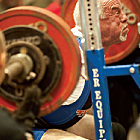 “Squats are bad for you.” We have all heard that declaration, but is it true? There are so many variables involving squat performance and training load, it’s inevitable that some trainees will have knee pain when they squat. That doesn’t mean that the squat is a bad movement. In fact, it’s healthier for the knee than some commonly accepted knee exercises.
“Squats are bad for you.” We have all heard that declaration, but is it true? There are so many variables involving squat performance and training load, it’s inevitable that some trainees will have knee pain when they squat. That doesn’t mean that the squat is a bad movement. In fact, it’s healthier for the knee than some commonly accepted knee exercises.
The concept that squats are bad came from people, including health-care professionals, who knew very little about strength training or weight training. Even worse, they let their personal, uninformed biases influence people who also didn’t know any better. The result is those words echoed through society for decades, to the point where people who have never trained will recite the words like parrots.
The majority of trainees, who have been taught proper squat technique and have a properly designed training program and training load, have very little, if any, pain from squats. Due to its natural function, squatting is called “physiologic flexion” by biomechanists. The cartilage on the back of the kneecap is not uniform in thickness. When you squat, the greatest stress on the kneecap lines up with the thickest part of the cartilage to help disperse the force. In contrast, the popular leg extension places the greatest stress on the thinnest portion of the cartilage.
That noted, there are trainees who have experienced knee pain from squats. Some have had knee injuries, which have damaged the cartilage, and that can make force distribution difficult and uncomfortable. As I always tell my patients, “We don’t come off the Ford assembly line. Our anatomy can vary.” Some people have shallow grooves where the kneecaps glide up and down. Some people have varying shapes of the back of the kneecap. Those are structural problems that may make the knee hurt during squats.
Poor squatting technique can also create knee pain. Too many trainees allow the knee to “hinge,” or move, first, and that moves it too far forward, placing too much pressure on the kneecap. This squatting method usually ends up with the trainee dropping squats and substituting leg presses.
Another unrecognized cause of knee pain is the pain from using too large of a training load. The load can be increased by performing too many sets and reps, using more weight than you’re ready for, using too much weight too often, and doing too many squatting sessions without a plan. The tendons above and below the kneecap—and the kneecap itself—can become sore and painful. Once that occurs, you must cut back on training, especially squatting, to allow the tissue to heal.
There are several steps to reducing knee pain from squats: 1) Learn how to squat properly. If you don’t know someone who can teach you—or if personal trainers don’t quite seem to have the technique—you can hire a strength and conditioning coach from a nearby university or college to teach you. If there isn’t one nearby who can help you, a weightlifting coach can teach you as well. 2) Review your squat programs for the past three to four months and see if you had a plan for handling the weight you were using. Or did you simply train heavy all the time? 3) If your knees are already sore, give them a break from training so they can heal and the inflammation can subside. Once your knees feel better, you can start squatting again lightly and use a periodization plan to build up to your heavy weight again. Remember, you can’t lift heavy weight in high volume often. Some part of this plan has to vary, or the tendons, muscle and cartilage may become inflamed and microscopically damaged.
If these descriptions apply to you, take the time to rethink your training plan so you can keep training.
Train smart; then train hard.
—Joseph M. Horrigan
Editor’s note: Visit www.SoftTissueCenter.com for reprints of Horrigan’s past Sportsmedicine columns that have appeared in IRON MAN. You can order the book 7-Minute Rotator Cuff Solution by Horrigan and Jerry Robinson from Home Gym Warehouse, (800) 447-0008 or at www.Home-Gym.com.















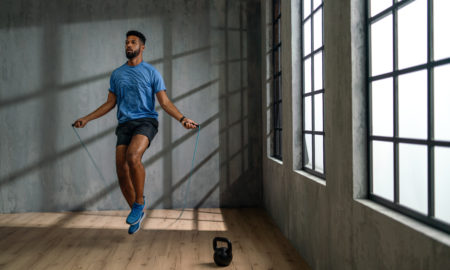
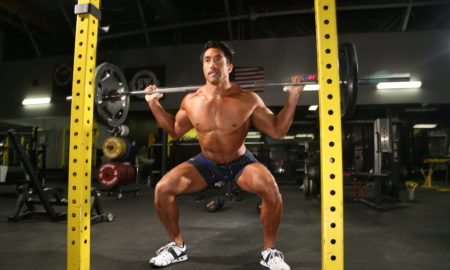
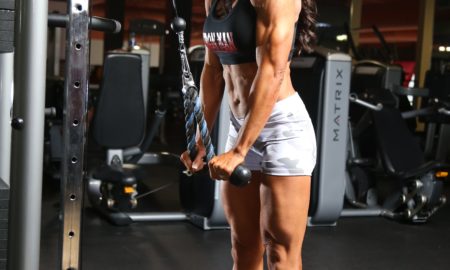
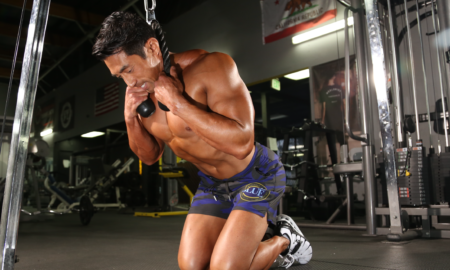
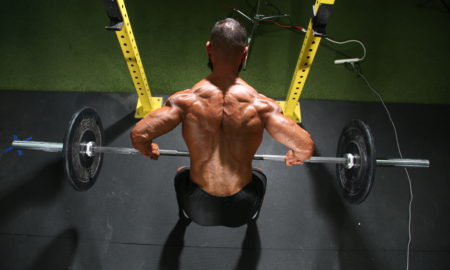
You must be logged in to post a comment Login